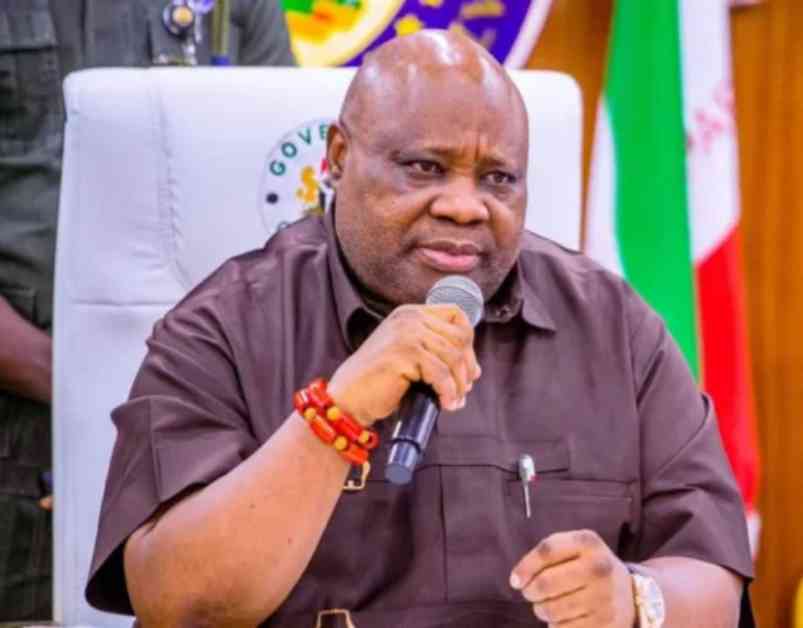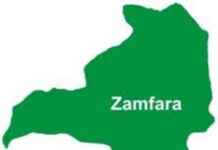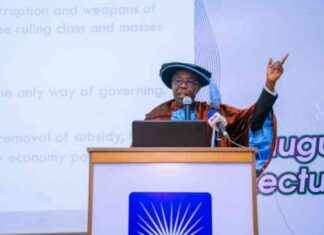Ademola Adeleke Denies Political Witch-Hunt in Petition Against Oyetola – Allegations of Misappropriation
In the vibrant political landscape of Osun State, Governor Ademola Adeleke recently made headlines by clarifying the nature of a petition filed against his predecessor, Adegboyega Oyetola, to the Economic and Financial Crimes Commission (EFCC). Adeleke vehemently denied any political motives, asserting that the petition stemmed from a meticulous, evidence-based investigation that began in early 2023.
The crux of the matter revolves around allegations of misappropriation of a $20 million World Bank health grant, which Adeleke contends was improperly handled under Oyetola’s administration. The petition also accuses the former governor of money laundering, financial misconduct, and violations of the Public Procurement Act in the allocation of funds intended for health sector enhancements within the state.
Adeleke’s stance on the issue has sparked a flurry of reactions, particularly from the All Progressives Congress (APC) in Osun State. The party’s Media Director, Kola Olabisi, rebuffed the petition as a mere ploy to tarnish Oyetola’s reputation. In a scathing response, Olabisi criticized Adeleke and his legal team for what he perceived as a concerted effort to besmirch the legacy of his predecessor.
Controversy Unfolds: The Dueling Narratives
As the political drama unfolds, both sides present contrasting narratives that underscore the deep-seated tensions within the state. While Adeleke’s camp maintains that the EFCC petition is a necessary step towards accountability and transparency, the APC vehemently refutes these claims, dismissing them as baseless propaganda and diversionary tactics.
The state government, represented by the Commissioner for Information and Public Enlightenment, Kolapo Alimi, has firmly stood behind Adeleke’s actions, emphasizing that the petition is grounded in an exhaustive process of fact-finding and due diligence. According to Alimi, the revelations of corruption, misappropriation, and abuse of office necessitated a comprehensive response to uphold the principles of good governance.
In a bid to set the record straight, Alimi outlined the series of investigations and committees that culminated in the submission of the EFCC petition. He highlighted the findings of a Contract Review Committee, which uncovered egregious financial irregularities and malfeasance under Oyetola’s administration. These findings, validated by a White Paper Committee, formed the basis for recommending legal action against implicated officials.
Implications for Governance: The Quest for Accountability
At the heart of this controversy lies a fundamental question of governance and ethical conduct in public office. The allegations leveled against Oyetola paint a stark picture of financial recklessness and nepotism, where contracts were awarded without due process to individuals with close ties to the former governor and his associates.
The contrast between the approaches of the Adeleke administration and the APC underscores divergent philosophies on governance. While Adeleke’s government emphasizes accountability, transparency, and adherence to the rule of law, the APC is portrayed as perpetuating a culture of impunity and cronyism.
As the EFCC delves into the details of the petition and conducts its own investigation, the residents of Osun State are left grappling with the implications of these allegations on their daily lives. The outcome of this inquiry has the potential to shape the future trajectory of governance in the state, setting a precedent for ethical conduct and accountability among public officials.
In the midst of this political storm, one thing remains clear: the quest for truth, justice, and good governance transcends party lines and personal agendas. The people of Osun State, like citizens everywhere, deserve leaders who prioritize the public interest above all else, embodying the values of integrity, transparency, and accountability in their stewardship of the state’s resources and welfare.















